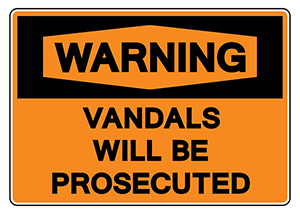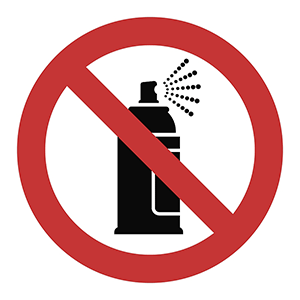Search Texas Criminal Mischief Records
Texas Criminal Mischief: Understanding the Charges and Consequences
Texas criminal mischief is a criminal offense that often involves intentional destruction, tampering, or harm to personal, business or public property. This can include vandalism, destruction, arson or a multitude of other destructive and intentional acts. Criminal mischief offense can range from minor damages, like graffiti, to much more severe damages that usually result in costly repairs or sometimes public safety that can endanger people’s lives. The resulting criminal mischief charges in Texas can vary quite a bit depending on the severity of the damage caused.
What Is Criminal Mischief in Texas?
Criminal mischief in Texas is defined by a few categories such as:
- When someone intentionally damages or destroys someone’s personal property, which can include their homes, vehicles or other possessions.
- When a person intentionally tampers with another person’s property causing financial loss, repairs, or a significant inconvenience from the mischief act.
- When someone intentionally makes markings, inscriptions, or defaces another person’s property. Vandalism and graffiti are some of the most common forms of criminal mischief in Texas.
Criminal Mischief Charges in Texas
The penalties for criminal mischief in Texas vary quite a bit, based on the dollar amount of the damage, the type of property damaged, or the effects of the tampering of public or personal property. Here’s how Texas categorizes these criminal mischief offenses:
- Class C Misdemeanor: When the damage amounts to less than $100.
- Class B Misdemeanor: When damages are between $100 and $750.
- Class A Misdemeanor: Damage is between $750 and $2,500.
- State Jail Felony: When damages are between $2,500 and $30,000, or the crime caused a financial loss of less than $2,500 but resulted in the damages or interruptions of public services or utilities such as; water, natural gas delivery, power outages, internet services, or any other damages related to any public infrastructure.
- Third-Degree Felony: If the damages range between $30,000 and $150,000.
- Second-Degree Felony: If the damage is between $150,000 and $300,000.
- First-Degree Felony: If the damage amounts to $300,000 or more.
Texas Criminal Mischief Penalties
The penalties for criminal mischief, as stated in the Penal Code, are determined based on the value of the damage or the type of property affected:
- Less than $100: Class C Misdemeanor
- $100 to less than $750: Class B Misdemeanor
- $750 to less than $2,500: Class A Misdemeanor
- $2,500 to less than $30,000: State Jail Felony
- $30,000 to less than $150,000: Third-Degree Felony
- $150,000 to less than $300,000: Second-Degree Felony
- $300,000 or more: First-Degree Felony
There might also be special considerations for damage that causes major inconveniences or interruptions of public services, or if the damage was done to certain types of properties like churches, grave sites, public monuments, or community centers. These rulings might be a bit more subjective and can also include other criminal charges depending on the circumstances.

Conviction of Criminal Mischief in Texas
For someone to be arrested and convicted of criminal mischief in Texas, the state or prosecution must prove beyond a reasonable doubt that the defendant knowingly and intentionally committed the act. This means that there must be sufficing evidence, such as:
- If a witness testifies that they saw the action itself, or the person involved.
- Video footage of the incident that clearly shows who and what happened.
- Physical evidence, such as tools or substances used that created the damage.
- Statements made by the defendant in which they might incriminate themselves.
Sentencing of Criminal Mischief in Texas
Once convicted, the sentencing will align with the severity of the crime which are based on the relevant Texas penal codes:
- Class C Misdemeanor: Fine of up to $500.
- Class B Misdemeanor: Sentenced up to 180 days in jail and/or a fine up to $2,000.
- Class A Misdemeanor: Sentenced to 1 year in jail and/or a fine up to $4,000.
- State Jail Felony: Sentenced between 180 days to 2 years in a state jail and/or a fine up to $10,000.
- Third-Degree Felony: Sentenced from 2 to 10 years in prison and a fine up to $10,000.
- Second-Degree Felony: Sentenced from 2 to 20 years in prison and a fine up to $10,000.
- First-Degree Felony: Sentenced 5 to 99 years (or life) in prison and a fine up to $10,000.
The range of penalties for sentencing given out for these crimes depends on the nature of the criminal act, what evidence was presented and of course what the defendant said in court and how the courts perceived the criminal acts. If the mischief acts included extreme malice or included hate related crimes, the penalties will be much greater. The judge, or jury, will decide the severity of the sentencing. You can find information about potential sentencing from the Texas Attorney General website.
Texas Criminal Mischief Penal Codes
For more granular insights to the penal codes that are used to enforce criminal mischief, they fall under Title 7, Chapter 28, Section 28.03 of the Texas State Penal Code. This section basically defines and details the actions and charges that are associated with criminal mischief in Texas and the penalties that are assigned to each of the acts depending on the financial loss, inconvenience it creates, and any public safety related issues caused by these actions. The Texas penal codes for criminal mischief have been updated and modified over the years so it is important to check with the Texas State Legislature for the most recent updates.
Looking Up Criminal Mischief Records in Texas
If someone wants to check a person’s criminal record in Texas for any mischief offenses, they can utilize the following methods:
- Online Databases: The Texas Department of Public Safety has an online tool known as the Computerized Criminal History System (CCH), where anyone can run a search for Texas-based criminal records.
- County Clerk’s Office: For local records, one can visit or contact the relevant Texas county clerk’s office where the offense occurred, such as the Harris county clerk’s office.
- Background Check Services: There are several online background check and public record services that offer criminal background checks that include Texas criminal mischief offenses.
The Seriousness of Criminal Mischief
While some people may dismiss criminal mischief as a minor crime, especially if the damages are small, the consequences of such actions can be severe. This is especially true for repeat offenders or if the damages cause significant financial loss or create public safety issues. This can also lead to property owners feeling violated and unsafe in their homes and puts a dent in the community trust. No matter what the circumstance, it is a criminal offense that can lead to stiff penalties and even jail time.

Texas Criminal Mischief - FAQ
What is considered criminal mischief in Texas?
It is the intentional destruction or damaging of property. It can include personal property, business property or public property. This might include damaging, destroying or altering property such as vandalism or graffiti.Is graffiti considered criminal mischief in Texas?
Yes, it is a form of criminal mischief that can result in misdemeanor charges, or sometimes felony charges depending on what was vandalized and if there was any hate speech or hate crimes committed.Can I be charged with a felony for criminal mischief in Texas?
Yes, there are felony charges associated with criminal mischief charges in Texas depending on the extent of the damages caused and what type of property was damaged. It can result in very large fines and jail or prison time as well.What's the difference between vandalism and criminal mischief?
In Texas, vandalism is typically referred to as criminal mischief. They are basically the same actions involving property damage and the charges for vandalism are classified as criminal mischief.Can I face jail time for criminal mischief in Texas?
Yes. Depending on the the damages caused and the severity of the criminal act, you can face jail time, especially for higher misdemeanor and felony-level offenses in the state of Texas.What evidence is used in criminal mischief cases?
Evidence can include photos, video footage, witness testimonies, defendant statements, and physical evidence such as tools or graffiti spray-paint cans.How long does a criminal mischief conviction stay on my record?
Unless expunged or sealed, a criminal mischief conviction can potentially remain on your record indefinitely. Some of the minor charges for criminal mischief can drop off after a set amount of years but the more serious misdemeanor and felony charges can stay on your record forever.Can I look up someone's Texas criminal mischief records?
Yes, since they are considered public criminal records, anyone can lookup another person's Texas criminal mischief records using a public record website.Does a criminal mischief record show up on a background check?
Yes, they are considered criminal records which are a part of a person's public record and will be listed on a background check.Is damaging public property considered criminal mischief?
If the damages were done intentionally and willfully then yes, they are considered criminal mischief and can result in stiff penalties, massive fines and even jail time depending on the severity of the damages to public property.Before Comments
Please be advised that the information accessed through SearchQuarry.com searches may not always be accurate or current, as we neither generate nor authenticate the data provided via our service. The reliability and precision of information are primarily contingent upon diverse public sources from which data is compiled. By utilizing SearchQuarry.com, you acknowledge your acceptance of the terms delineated in the SearchQuarry.com terms of service and our privacy policies. Information acquired via SearchQuarry.com must not be utilized for unlawful purposes such as stalking or harassing individuals, or scrutinizing public figures or celebrities. Individuals who contravene these directives may be subject to both civil and criminal legal proceedings and sanctions. It is explicitly stated that SearchQuarry.com does not function as a "consumer reporting agency" as defined by the Fair Credit Reporting Act ("FCRA"), and therefore, does not furnish "consumer reports" pursuant to the FCRA. SearchQuarry.com strictly prohibits the utilization of information garnered from search results (a) for discriminatory practices against any consumer; (b) for assessing a consumer's eligibility for personal credit, insurance, employment, housing, or government licenses or benefits; or (c) in any other manner that may impact a consumer's economic or financial status or standing.



Comments
Last Updated: 2023-10-04